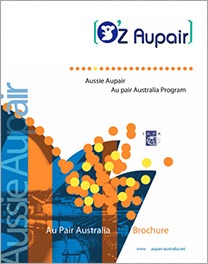Up to 40h week including babysitting (Monday – Friday) Placement completion BONUS of one week’s pocket money to be paid to all au pairs who have completed their full agreed placement duration (applicable for placements which are 6 months or longer in length). Au pairs in Australia typically engage in a variety of tasks related to childcare and light household duties. However, it’s important to note that the specific duties can vary depending on the family’s needs and the arrangement made between the au pair and the host family. The expectations should be clearly outlined in the au pair agreement or contract. Here are some examples of suitable and unsuitable tasks for au pairs in Australia: Suitable Tasks: Childcare: Meal Preparation: Light Housekeeping: Heavy Cleaning: It’s crucial for both the au pair and the host family to communicate openly about expectations, responsibilities, and limitations. This helps ensure a positive and mutually beneficial experience for both parties. When a driving au pair is requested – our agency specifically selects applicants who have confirmed to be confident/safe drivers in their home countries during their interviews. We are however unable to assess the au pair’s driving ability in practise. With this in mind, and considering that most au pairs have never driven on the left hand side of the road, initial practise is always needed to allow the au pair to adjust driving in Australia. It may take from as little as a couple of days to 2-3 weeks for an au pair to fully adjust to driving in Australia. Insurance: Host families are generally responsible for providing insurance coverage for their vehicles, including coverage for the au pair while driving. It’s important for both the host family and the au pair to understand the terms and conditions of the insurance policy. Communication with Host Family: Clear communication between the host family and the au pair is crucial. This includes discussing driving expectations, schedules, and any limitations or preferences related to the use of the family vehicle. Safety First: The safety of both the au pair and the children is of utmost importance. Host families should ensure that the au pair is aware of and follows all safety guidelines, including proper use of car seats and seat belts. Regular vehicle maintenance checks are also essential to guarantee the reliability and safety of the family car. Driving Schedule and Limitations: Clear communication regarding driving schedules and limitations is crucial for a successful au pair arrangement. Host families should discuss expectations regarding driving hours, frequency, and any restrictions on the use of the vehicle. Similarly, au pairs should communicate their comfort levels, ensuring that driving responsibilities align with their abilities and preferences. Au pairs typically bring a range of childcare experiences to their roles, and their backgrounds can vary widely. When families select an au pair, they often look for candidates who have demonstrated an ability to care for children and contribute positively to their well-being. Here are common childcare experiences that au pairs may have: Babysitting: It’s important for host families to discuss and understand an au pair’s childcare experiences during the selection process. Additionally, open communication about the specific needs and expectations for their children helps ensure a successful and harmonious arrangement. The childcare experience of au pairs contributes to the overall cultural exchange and support they provide within the host family.General Program Guidelines:
Free time Saturday and Sunday (minimum 2 full days).
Up to 1h of light household duties per day (no more than 5h/week).
Pocket money : Min $8 per hour (basic category) $9-$10 ( Au pair Plus and Platinum)Expected Suitable and Unsuitable duties of au pairs:
Transportation:
Language and Cultural Exchange:
Assistance with Homework:
Unsuitable Tasks:
Errands and Personal Tasks:
Extended Hours or Overtime:
Discipline and Punishment:
Pet Care:
Adult or Elderly Care:
Au Pairs & Driving:
Childcare experience of Au pairs
Teaching or Tutoring:
Daycare or Preschool Assistance:
Sibling Care:
Camp Counselor:
Special Needs Care:
First Aid and CPR Training:
Language and Cultural Exchange:


